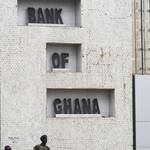The Bank of Ghana (BoG) has decided to maintain the monetary policy rate at 29%, citing recent exchange rate pressures, upward adjustments in utility tariffs, and increases in fuel prices as key risks to inflation that remain slightly tilted to the upside.
BoG Governor Dr. Ernest Addison, speaking at the Monetary Policy Committee (MPC) media briefing, explained that the decision to hold the rate steady was influenced by the uncertainty surrounding the inflation trajectory for the year.
While inflation is expected to remain within the target band of 13-17% for this year, achieving this will require a strong monetary policy stance, bolstered by robust fiscal consolidation efforts.
Despite a significant drop in inflation from 54.1% in December 2022 to 22.8% in June 2024, Dr. Addison highlighted ongoing uncertainties that could impact the inflation trajectory for the rest of the year.
These uncertainties stem from recent exchange rate pressures, increases in utility tariffs, and a surge in ex-pump fuel prices.
“Even though we expect inflation to remain within the target range, the risks are tilted slightly upward,” Dr. Addison stated.
He emphasized that strong monetary policy and continued fiscal consolidation efforts are essential to achieving the end-year inflation target.
Dr. Addison also noted that reserve build-up had been strong in the first half of the year, coupled with an improved external payments position during the same period.
The current account surplus significantly improved, aided by strong gold exports, robust remittances, and the effects of debt suspension.
This development, along with the Domestic Gold Purchase Programme, has helped accumulate reserves faster than envisaged under the IMF-supported program.
“With a favourable external position and a strong reserve build-up, the Bank of Ghana is better positioned to provide a cushion against external shocks to the economy and thereby provide stability in the foreign exchange market,” he said.
The relative stability in the foreign exchange market in recent weeks reflects the continued tight monetary policy stance, implementation of the dynamic Cash Reserve Ratio (CRR) to mop up excess liquidity, revised regulations on advanced payments for imports by the Bank, and positive sentiments from the third tranche of the IMF Extended Credit Facility and the agreement in principle with external creditors.
From the beginning of the year to July 19, 2024, the Ghana Cedi depreciated by 19.6% against the US Dollar, compared to 22.1% during the same period last year. There was a significant build-up in international reserves during the first six months of the year.
Gross International Reserves (GIR) increased by $947 million to $6.87 billion at the end of June 2024, equivalent to 3.1 months of import cover.
Net International Reserves also increased by $1.31 billion to $4.5 billion at the end of June 2024.
The higher build-up in Gross International Reserves was aided by the strong performance of the domestic gold purchase program.
Ghana, known as the world’s second-largest cocoa producer and a significant exporter of fossil fuels, has been grappling with chronic economic challenges.
In May 2023, the country secured a three-year, $3 billion bailout package from the International Monetary Fund (IMF) to help reduce inflation, curb currency depreciation, and revive the struggling economy.
This latest move by the BoG underscores the central bank’s commitment to stabilizing the country’s macroeconomic conditions and ensuring a sustainable economic recovery.




